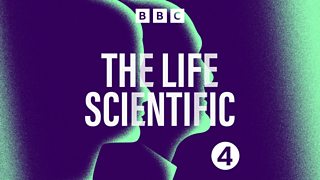Six things that explain why we get upset when our football team loses

It’s not life or death, or divorce or financial ruin, but a football club’s defeat can be met with such a huge outpouring of sorrow from its fans that you wouldn’t know the difference!
Paleoanthropologist Ella Al-Shamahi teams up with Crystal Palace superfan Bobby Webb and psychologist Martha Newson to discover the evolutionary and cultural reasons why such an emotional response to sport is almost inevitable.
Here are six things that explain why we get upset when our team loses:
Hunter-gatherers played team sports
Research has found that many palaeolithic hunter-gathers played team sports and there was a definite crossover between the movements used in those games – such as catching, dodging and grappling – and ones needed in using and avoiding weapons. “What we see as a fun group activity might have partially developed as training for warfare,” says Ella.
I've got a vivid memory of just being in floods of tears and holding on to my dad, hoping it was going to be okay. It wasn't. We got relegated the next week.
Tribalism is hardwired into our DNA
Given the historical association between team sports and defence, it’s no surprise that a sense of tribalism is, as Ella observes, “probably hardwired into our DNA”.
Studies have shown that if someone spots a stranger wearing the sports kit of their team at an away fixture and then shouts the team’s slogan or song, the responses were more common and more positive than at home fixtures. “In other words, when you were in your home territory,” says Ella, “you don't need to show your tribal identity as much as when you are in rival territory.”

If your tribe loses, the response can be visceral
Crystal Palace superfan Bobby Webb describes how, aged 11, he watched as his beloved team conceded a last-minute goal against Southampton and lost control of their relegation battle. “I've got a vivid memory of just being in floods of tears and holding on to my dad, hoping it was going to be okay. It wasn't. We got relegated the next week. Nothing compared to that moment of desolation against Southampton.”

When you go through a traumatic event, that's when you need to pull together even more
Even now, Bobby is not spared humiliation when his team loses, with his friends immediately texting him to glory in the defeat of a rival tribe. “It’s merciless, unfortunately,” he says.
Less successful teams have the most diehard fans
Bobby describes Crystal Palace as a club “rooted in the community”, and their fans have been shown to be high scorers when it comes to an unselfish loyalty to each other. By using a version of “the trolley problem”, where individual fans were asked if they would jump out in front of a train to save a group of five fellow supporters, Dr Martha Newson found that fans of less successful clubs “were by far the most bonded to their fellow fans. They saw each other as kin and were the most willing to sacrifice themselves for the sake of other fans,” she says.
“From the teams that we worked with,” adds Dr Newsom, “Crystal Palace had the most bonded fans, and they were the most willing to sacrifice themselves to save other fans, over 20% of them, compared to about 7% of Arsenal fans.”
Football fans go through dysphoria
The bond that Dr Newson describes is born out of dysphoria – it’s the opposite of euphoria and a condition that is also experienced by survivors of natural disasters and those who have been on the frontline in a war. Most people who find themselves in this vulnerable state will integrate with others who have undergone similar experiences, and this “identity fusion”, as Dr Newson describes it, is a way for groups of people to recognise who their “family” or tribe is.
“When you go through a traumatic event, that's when you need to pull together even more,” says Dr Newson. “You need a tight band around you, a tight band of brothers if you like, and football stands in for that.”
Emotional response is a positive part of fan identity
Football can be seen as a modern substitute for warfare or hunting, and while it does occasionally spill over into violence, it is mostly a positive a way to find a connection.
“I think it's absolutely vital that we find ways to connect and have meaning,” says Dr Newson, adding: “To have good friends and a purpose through others is fundamental to a happy and connected existence, and maybe football can make some small dent in that.”
“In Northern Europe it's very rare to see grown men hug, kiss, and cry openly,” remarks Dr Newson, “but you do in football. So, for the majority of fans, there is a safe space for emotional release, and it is a really positive part of their identity.”

More science from Radio 4
-
![]()
Curious Cases
Hannah Fry and Dara 脫 Briain tackle listeners' conundrums with the power of science!
-
![]()
The Infinite Monkey Cage
Brian Cox and Robin Ince host a witty, irreverent look at the world through scientists' eyes.
-
![]()
The Life Scientific
Professor Jim Al-Khalili talks to leading scientists about their life and work
-
![]()
Human Intelligence
Naomi Alderman dissects the minds of brilliant thinkers from the past, examining the myriad ways in which humans think.




